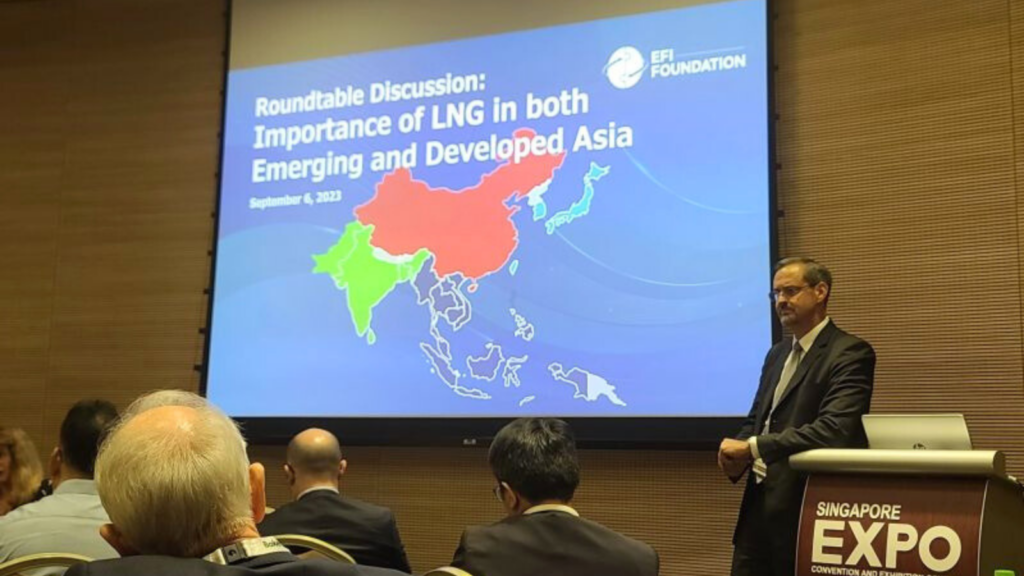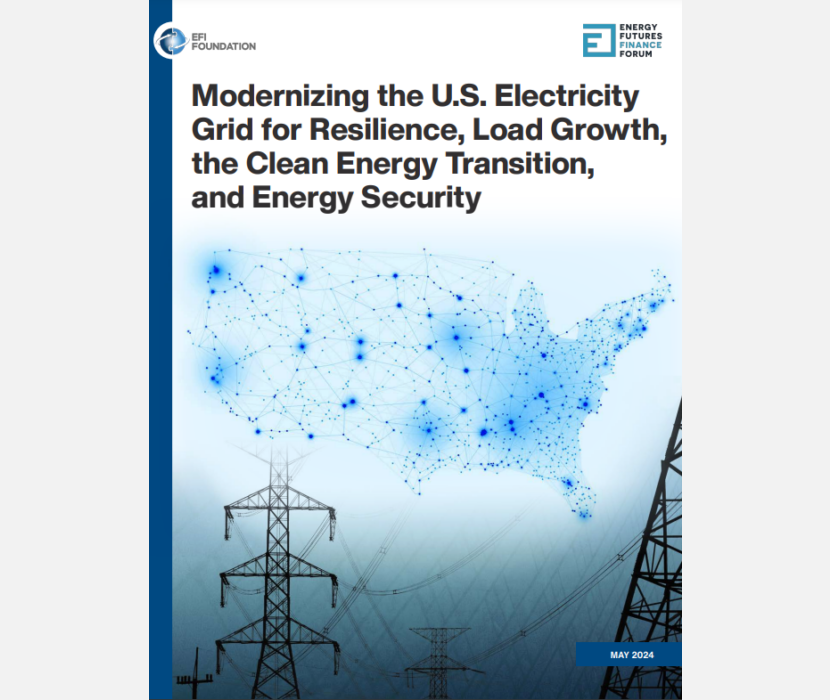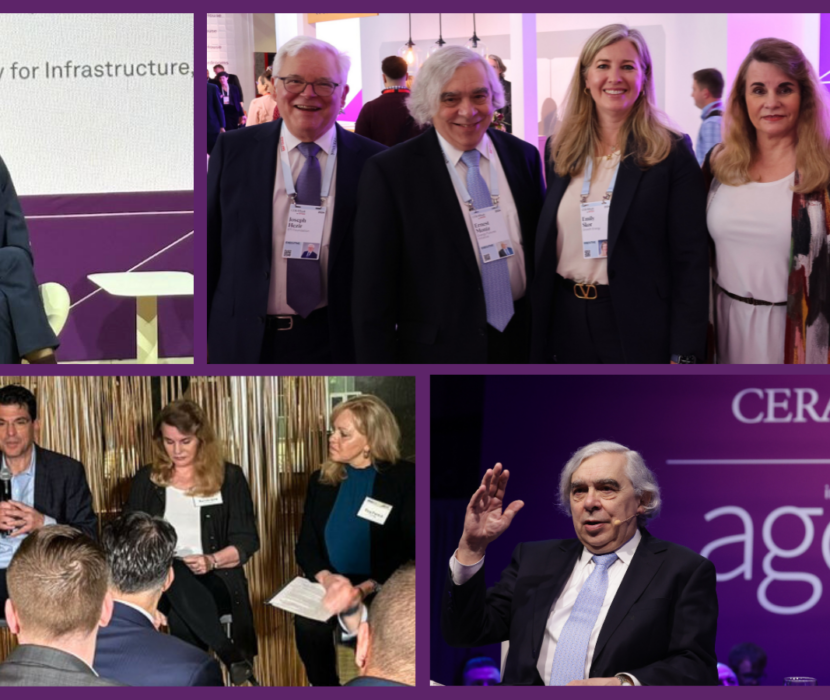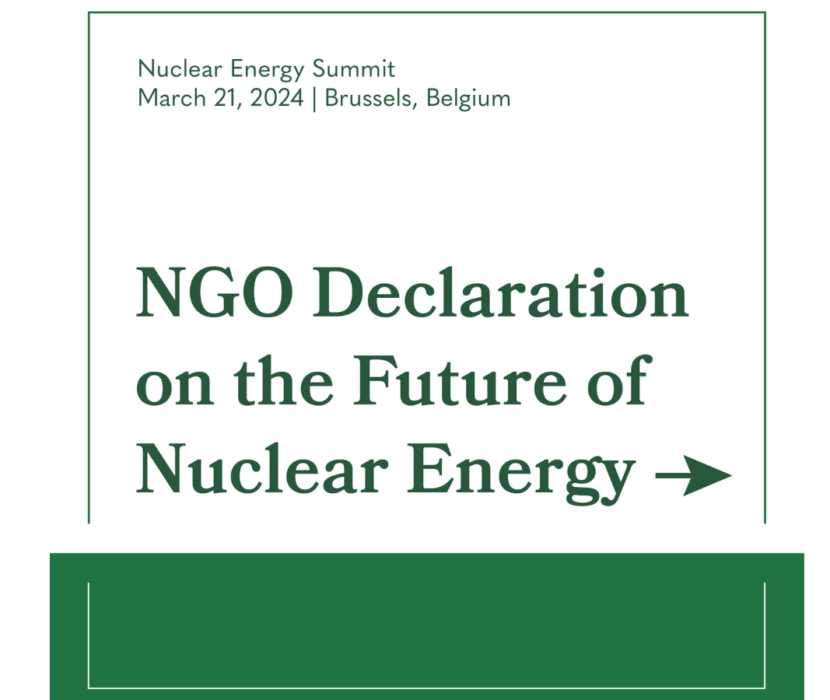
In September, the EFI Foundation and local partners convened about 30 natural gas stakeholders for a roundtable in Singapore—coinciding with Gastech, one of the largest meeting places for global natural gas industry leaders.
The Singapore roundtable was the fifth global gas convening that the EFI Foundation has held this year. Workshops in the United States showed a need for further stakeholder input, and the EFI Foundation went from there to roundtables in Sofia, Bulgaria, and Brussels, Belgium, in June, and then to Asia. In Europe, views varied widely by region, with Eastern European stakeholders expressing the importance of natural gas as a fuel source for energy security and decarbonization, and Western European stakeholders saying they were eager to transition away from natural gas as quickly as possible in favor of zero-carbon technologies.
This roundtable in Singapore—with stakeholders from the Asian natural gas industry, banking, nongovernment organizations, and government—showed how Europe’s energy market has been influencing Asia’s ability to purchase natural gas. Russia was the world’s largest piped gas exporter to Europe prior to invading Ukraine. However, Western sanctions and decreased natural gas supply from Russia resulted in a tightened market and increased prices globally.
European countries were able to pay higher prices to secure liquefied natural gas (LNG) supply, both from the spot market and from premium-priced gas resold by Asia. However, many low- and middle-income countries in Asia were priced out of the spot market. Across Asia, advanced economies such as Japan and South Korea have historically pursued a strategy of contracting long-term LNG supply, but many developing economies in the region do not have the capital or the credit for it.
For developing countries in Southeast Asia, the price of LNG had been decreasing prior to Russia’s invasion of Ukraine. At that time, they had begun to make natural gas a larger portion of their energy mix. Fuel switching from coal to natural gas is favorable for power sector decarbonization goals since burning natural gas results in fewer emissions than coal. But now, increased competition, unreliable supply, and higher natural gas prices are forcing developing countries in Asia to use more coal to meet their basic energy needs.
Qatar, Australia, Russia, and the United States are the world’s main natural gas suppliers. Qatar and Australia are unlikely to increase their exports enough to meet the growing demand in Southeast Asia (Brunei, Indonesia, Malaysia, Philippines, Singapore, Thailand, Timor-Leste, Vietnam, and Burma). Unless the United States were to increase its export capacity, market conditions will likely continue to make it harder for developing economies in Asia to purchase LNG.
Another challenge that stakeholders at the roundtable emphasized is energy poverty—which is a lack of energy access perpetuated by an inability to afford it. According to the Asian Development Bank, more than 350 million people in Asia have “limited access to electricity” and 150 million have “no access at all.” Many stakeholders said it is important for advanced economies to understand that economic development is more important than climate change for much of Asia.
The EFI Foundation hosted the Asia roundtable with the Institute of Energy Economics, Japan (IEEJ) and the Economic Research Institute for ASEAN and East Asia, and it is part of our larger work on the future of natural gas in a deeply decarbonized world. In 2022, just as the war in Ukraine was unfolding, the Energy Futures Initiative (EFI) hosted a virtual workshop with IEEJ on “Energy Security and Economic Interdependence in the U.S.-Asia Relationship” in which stakeholders emphasized Asia’s need for U.S. natural gas imports and the challenge of obtaining abundant and affordable natural gas in Asia. In 2021, EFI published a report on a series of eight regional workshops with natural gas experts from across the world.
This Asia roundtable report, our European roundtables report, and our U.S. workshop report will be inputs for a final report to be released in 2024 on the global role of natural gas as the world aims to meet ambitious climate goals.
– Georgia Lyon, Communications Associate
With contributions from Alicia Moulton (Deputy Director of Communications) and Ben Bajema (Analyst)
(Share this post with others.)




